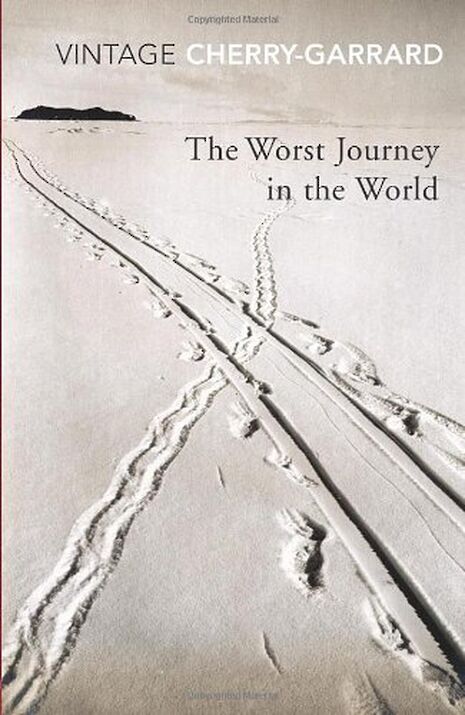The Worst Journey in the World: Apsley Cherry-Garrard
Charlotte Keith wells up a little reading the memoirs of the man who lived to tell Scott’s story.

‘All the world loves a penguin’, Cherry-Garrard muses, ‘I think it is because in many respects they are like ourselves, and in some respects they are what we should like to be’. This love would lead him, the youngest member of the original party that left England with Scott in 1910, to a place that made him understand why the Ninth Circle of Dante's hell was freezing cold. The ‘worst journey in the world’ of the title was an expedition undertaken by Cherry (as the rest of the group called him), along with Henry Bowers and Edward Wilson, in search of Emperor Penguin nesting grounds. Their aim was to get hold of some penguin embryos, in order to demonstrate the (in fact entirely specious) evolutionary link between penguins and reptiles.
There is a pervasive (and very English) stiff-upper-lipped-ness to Cherry’s writing. On the experience of camping in a blizzard somewhere off the (aptly named) Terror Point, he comments, ‘the position was not altogether a comfortable one’. At one point, the team’s tent blew away in a polar hurricane and they were forced to sleep in a snowdrift, convinced that they were going to die. But Cherry faces even this with an honesty that has nothing to do with bravado: ‘comfortable, warm reader: men do not fear death, they fear the pain of dying’.
The book’s title is, however, misleading. Cherry does not shy away from presenting the grim realities of everyday life in such extreme conditions, but nor does he present the explorers as victims. He remembers the days spent in that isolated ice-hut living mainly off seal fat, as ‘some of the happiest in my life’. ‘The necessities of civilization were luxuries to us’, he writes; ‘the luxuries of civilization satisfy only those wants which they themselves create’.
This is not a romanticised version of events, though. The worst journey in the world left Cherry in no fit state to accompany Scott to the Pole. His companions Wilson and Bowers died with Scott on that trip: this is also the account of the aftermath of Scott’s polar expedition, written by the first person to enter the tent where the bodies lay. To describe the moment of discovery, Cherry quotes from his own diary. The restraint of his account is incredibly poignant:
‘Nearly midday. 11-12 miles south of One Ton. We have found them – to say it has been a ghastly day cannot express it – it is too bad for words’.
In the end, Cherry blames Scott's death on insufficient manpower and funding. Scott himself, reflecting on the expedition in his diary, wrote that ‘it makes a tale for our generation which I hope may not be lost in the telling’. This particular re-telling is made especially moving by Cherry’s ‘survivor guilt’; his acknowledgement that ‘the worst journey in the world’ is, in fact, the one from which you do not return alive. He suffered from post-traumatic stress disorder for much of his life: the writing of the book could only do so much to assuage his grief. There is, finally, no escaping Cherry’s underlying conviction: ‘a war is like the Antarctic in one respect. There is no getting out of it with honour as long as you can put one foot in front of the other.’
 News / Uni Scout and Guide Club affirms trans inclusion 12 December 2025
News / Uni Scout and Guide Club affirms trans inclusion 12 December 2025 News / Pembroke to convert listed office building into accom9 December 2025
News / Pembroke to convert listed office building into accom9 December 2025 Features / Searching for community in queer Cambridge10 December 2025
Features / Searching for community in queer Cambridge10 December 2025 News / Uni redundancy consultation ‘falls short of legal duties’, unions say6 December 2025
News / Uni redundancy consultation ‘falls short of legal duties’, unions say6 December 2025 News / Gov declares £31m bus investment for Cambridge8 December 2025
News / Gov declares £31m bus investment for Cambridge8 December 2025








